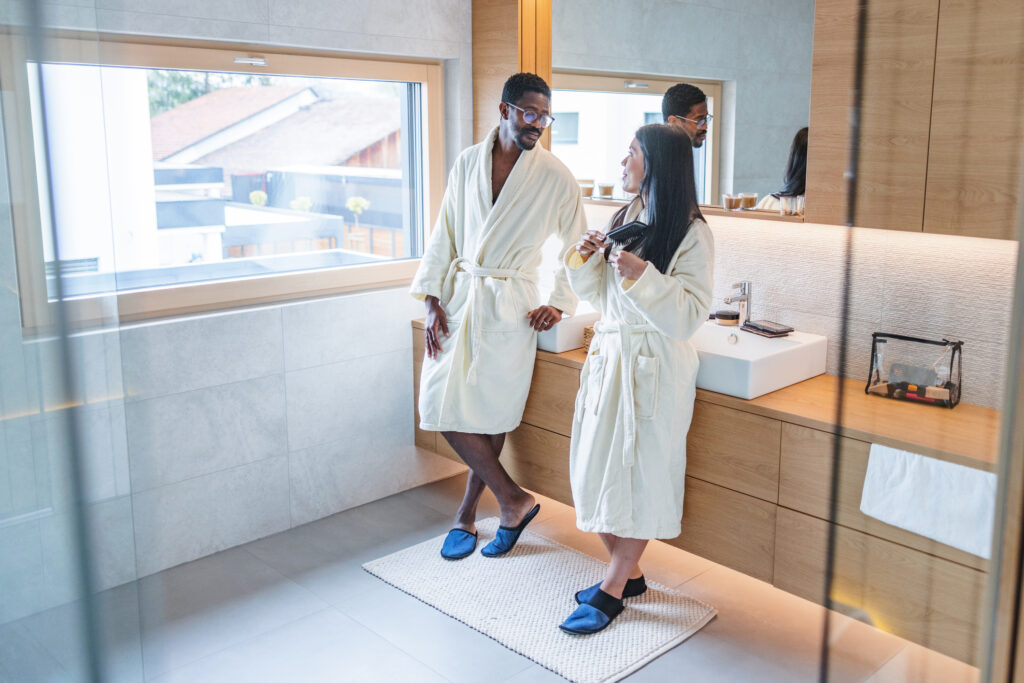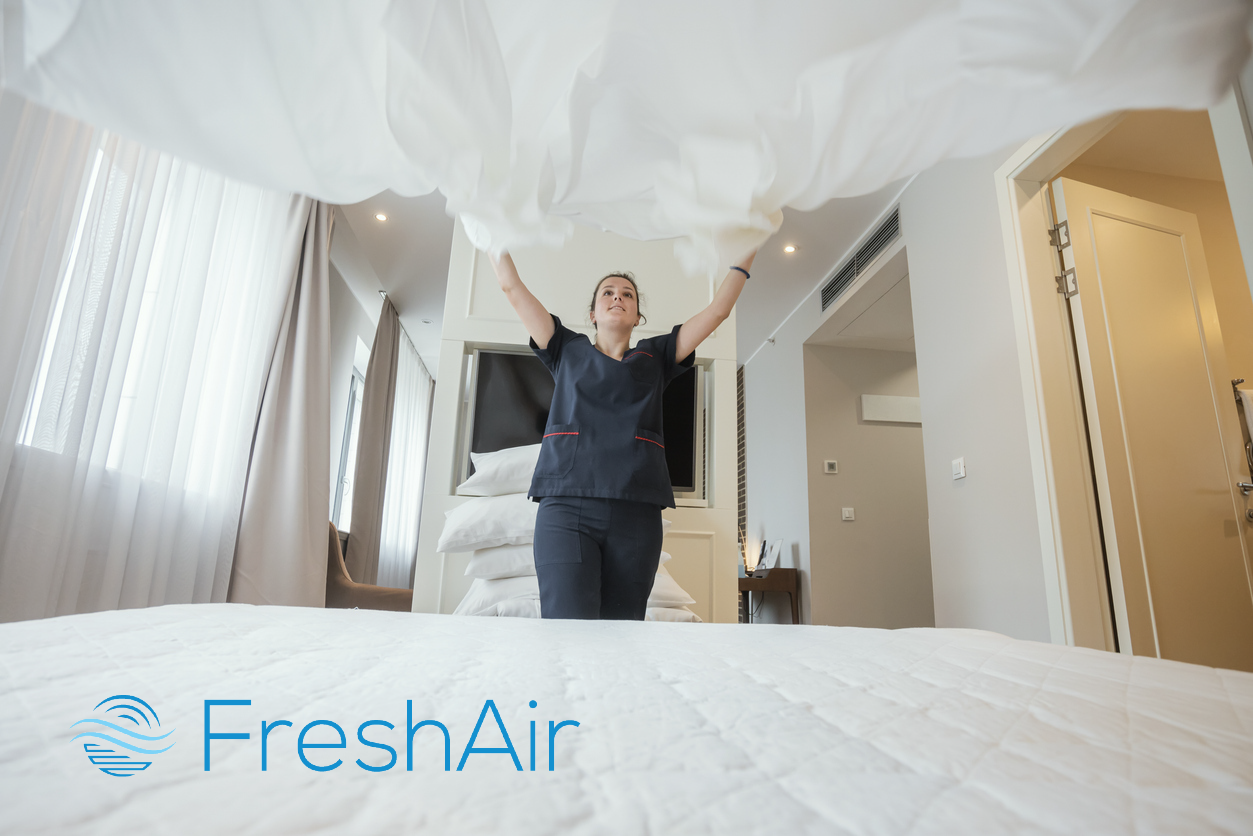Wellness travel is no longer niche—it’s rapidly becoming the standard guests expect. But for many hotels and casino resorts, the most powerful wellness upgrade isn’t a spa or yoga studio. It’s something far more elemental: the air guests breathe.
Wellness Travel Is Booming—and So are Guest Expectations
- The global wellness tourism market is projected to cross $1 trillion in 2024, with lodging being a major beneficiary (Global Wellness Institute)
- Wellness travelers consistently spend more: international wellness tourists spent ~41% more per trip than average tourists (TravelPulse)
- Many guests now expect that their stay supports their well-being—not just through fitness or spa, but in ambient conditions: comfort, air, and environment
In this landscape, any failure in air quality management—smoke, odors, or hidden pollutants—can damage brand value instantly.
Why Poor IAQ Undermines Reputation
Even when a property gets room cleaning and surface hygiene right, lingering smoke or odors can erase all goodwill. Some of the risks to brand reputation include:
- Negative reviews: Odor complaints get traction. Guests post instantly on review sites and social media.
- Perception of neglect: If guests sense the air isn’t cared for, they question your commitment to cleanliness and safety.
- Loyalty erosion: Wellness travelers expect elevated standards. When a stay feels “off,” they’re less likely to return or recommend.
- Claimed compensation: A guest who senses smoke intrusion may demand refunds or dispute charges, often publicly.
These are reputational costs—sometimes far more damaging and more lasting than the direct cost of remediation or cleaning.
How Healthier Environments Drive Loyalty (Without Massive Costs)
You don’t need to build a $10M spa to win in wellness. What you do need is a trustworthy ambient experience: clean, fresh, safe air. Here’s how properties are doing it:
- Molecular Smoke Detection
FreshAir Sensor devices detect combustion byproducts (tobacco, vaping, marijuana) at the molecular level. Because detection is scientifically specific and tamper-resistant, hotels gain confidence in guest-level evidence without expensive hardware overhauls. - Continuous IAQ Monitoring
Beyond smoke, molecular sensors track temperature, humidity, and volatile organic compounds (VOCs)—offering early insights into problematic air conditions before complaints or damage arise. - Proactive Alerts & Operational Integration
Alerts trigger real-time action (housekeeping, engineering, guest services), preventing odor escalation or secondhand smoke drift. Over time, data reveals which rooms or zones are repeat “hot spots.” - Guest-Facing Wellness Positioning
Use supporting data to support claims like “Certified Smoke Free property” or “FreshAir Certified™ rooms.” These are credible wellness differentiators that cost far less than building new spa wings. - Dashboard Insights & Trends
Performance reporting ties IAQ metrics to guest complaints, incident trends, and revenue outcomes—helping justify the program internally and refine strategies over time.
The ROI of Invisible Investment
While wellness capital investments can be heavy, the ROI on clean air is often swift and indirect:
- Fewer guest complaints and service recovery costs
- Lower incidence of remediation or deep cleans
- Stronger reviews and higher guest satisfaction scores
- Incremental premium room positioning (FreshAir Certified rooms)
- Reduced risk of reputational damage that lingers far longer than a refund
In many cases, a modest IAQ monitoring deployment can achieve outsized returns in guest loyalty and reputation protection.
To learn how your property can embrace wellness through clean air, schedule a demo today to discover the FreshAir Sensor advantage.


